Man Branded Heartless For Wanting To End Elderly Cat’s Suffering Rather Than Prolong Its Low-Quality Life
Taking care of pets is a major responsibility. It is not only important to feed and play with them, but also to ensure they are healthy and happy.
When our pets become ill or injured, we must make the best decision for their welfare. Sometimes that means getting them medical care, and sometimes it involves making difficult decisions to end their suffering.
The most important thing is to consider what is best for the pet, not what is best for ourselves. We must be truthful about whether we are keeping them alive for their benefit or our own.
The OP's elderly cat has had kidney problems for the past couple of years, for which he eats a special renal food. The 14-year-old feline has now developed a strange disease that causes him to vomit while or after eating.
Despite veterinary attention, the cat's condition has not improved, and the OP took the cat to the vet again. They performed an ultrasound and then an x-ray, where they believe they saw a mass in the cat's esophagus, which would explain his symptoms and why he's throwing up.
The OP must now choose between expensive, high-risk testing or palliative care to relieve his pet's pain. As the OP faces this difficult decision, his partner criticizes his choice, prompting a tense conversation.
The OP writes
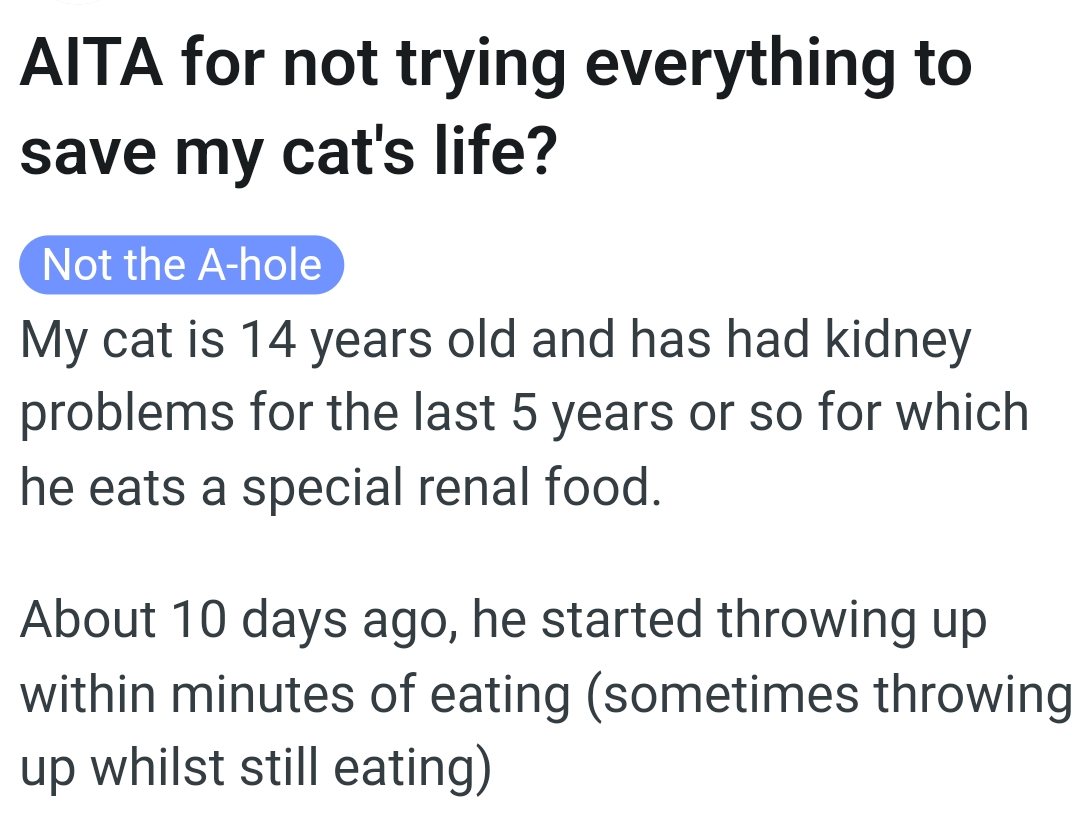
It was related to the cat's kidney problems and he was given a shot
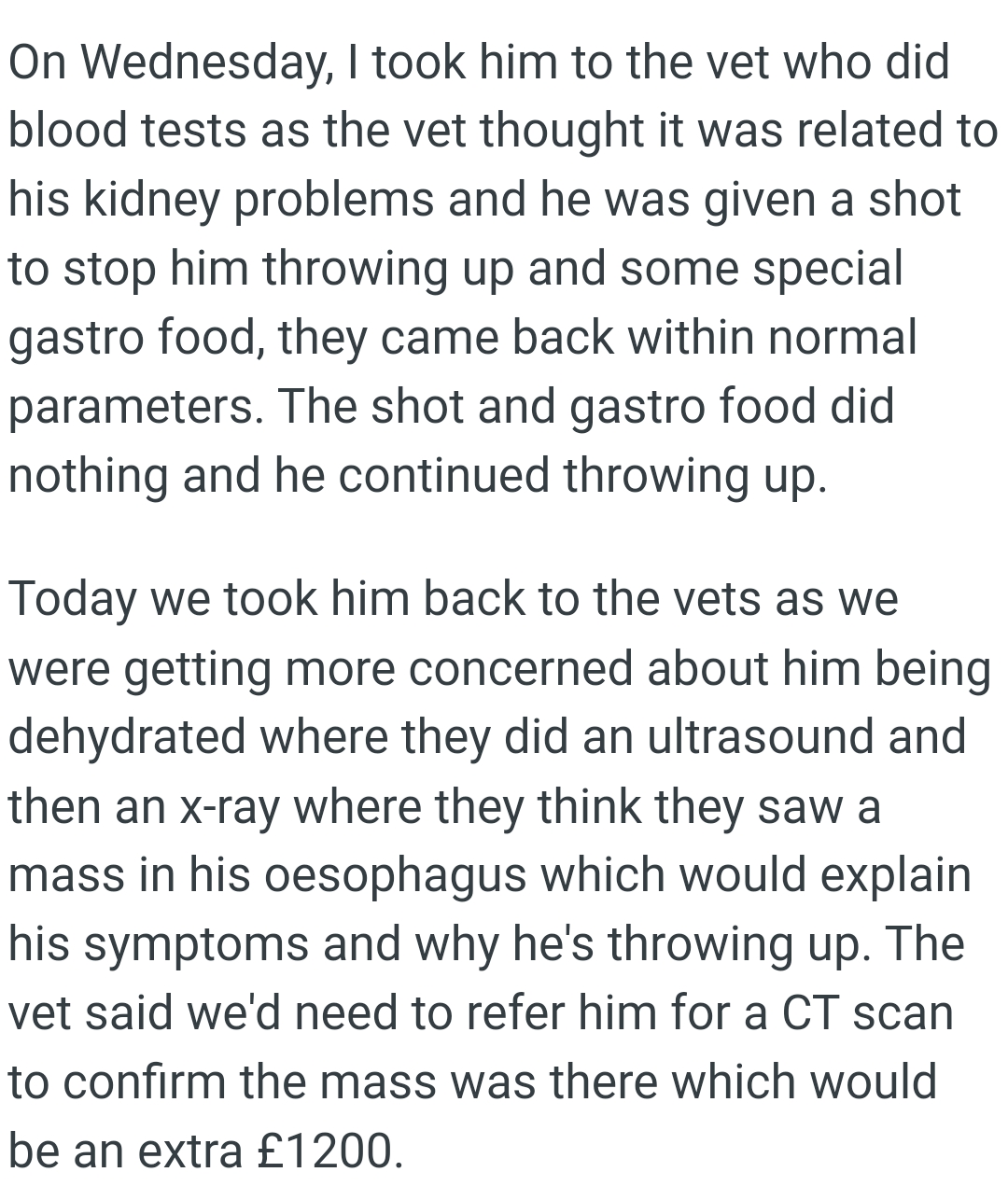
Understanding Quality of Life in Pets
Dr. Alice Green, a veterinary behaviorist at the University of Pennsylvania, discusses the ethical dilemmas involved in end-of-life decisions for pets.
Her research emphasizes the importance of assessing a pet's quality of life when considering euthanasia.
Many pet owners grapple with feelings of guilt and confusion about the right course of action, particularly when it comes to prolonging suffering.
It would be very high risk but then, they will have a firm diagnosis
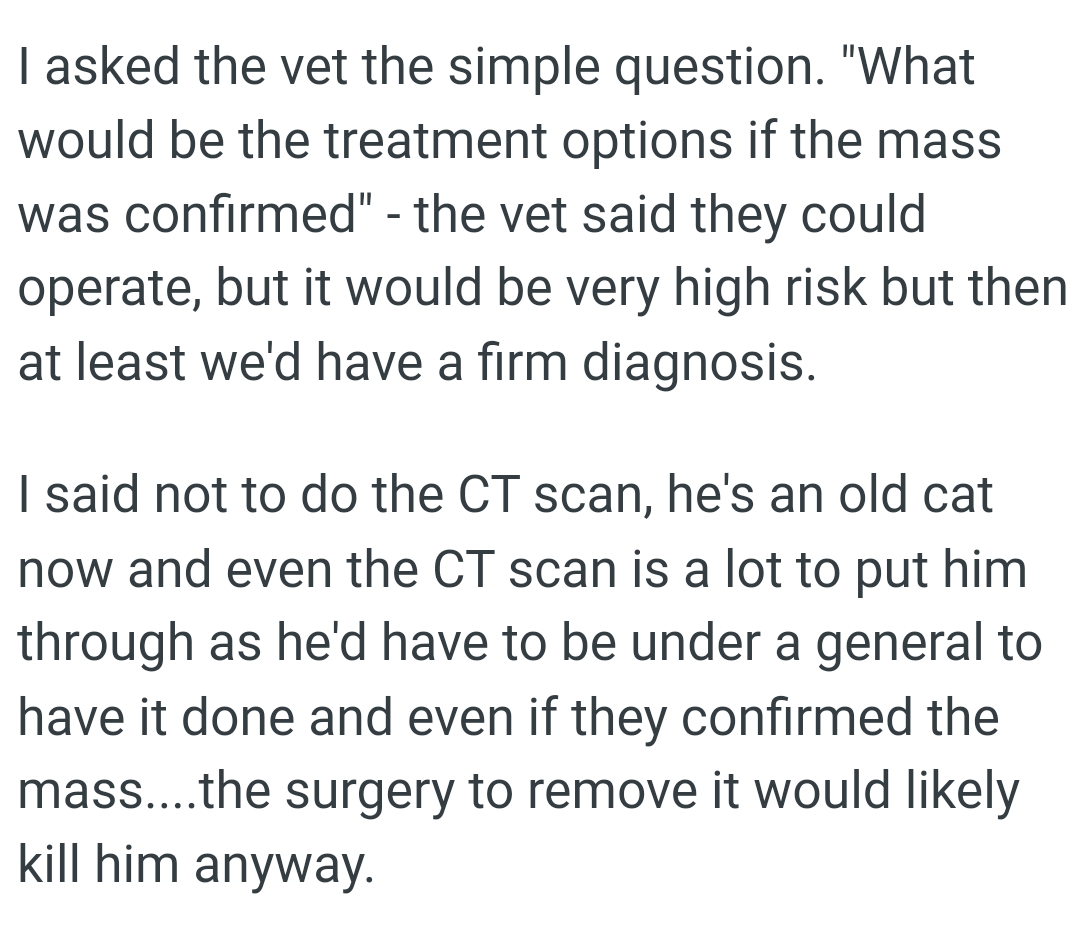
They see the cat getting vastly underweight or having other problems
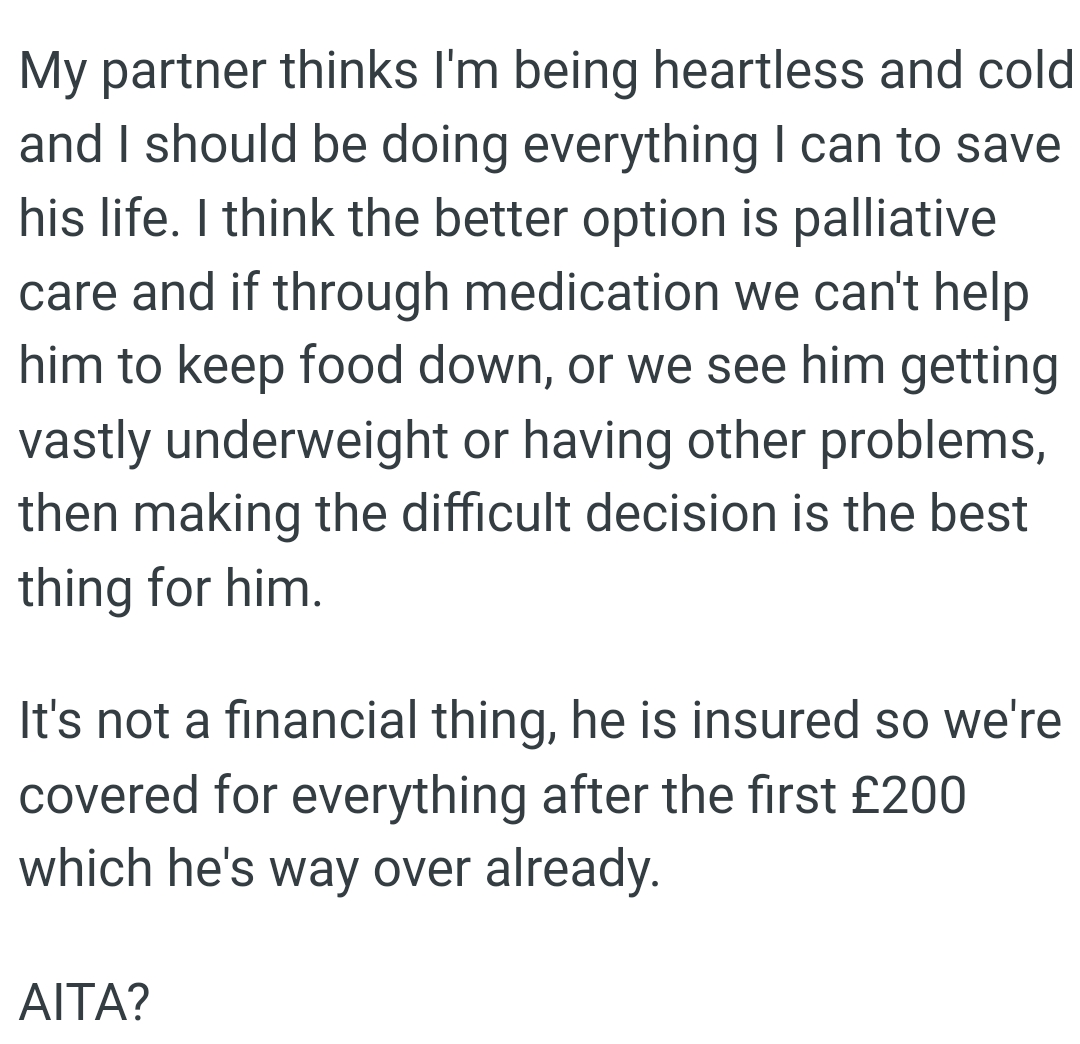
OP has offered the following explanation for why they think they might be the AH:
I might be the AH for not doing everything to save my cat's life, as my partner believes.
And the comments roll in...
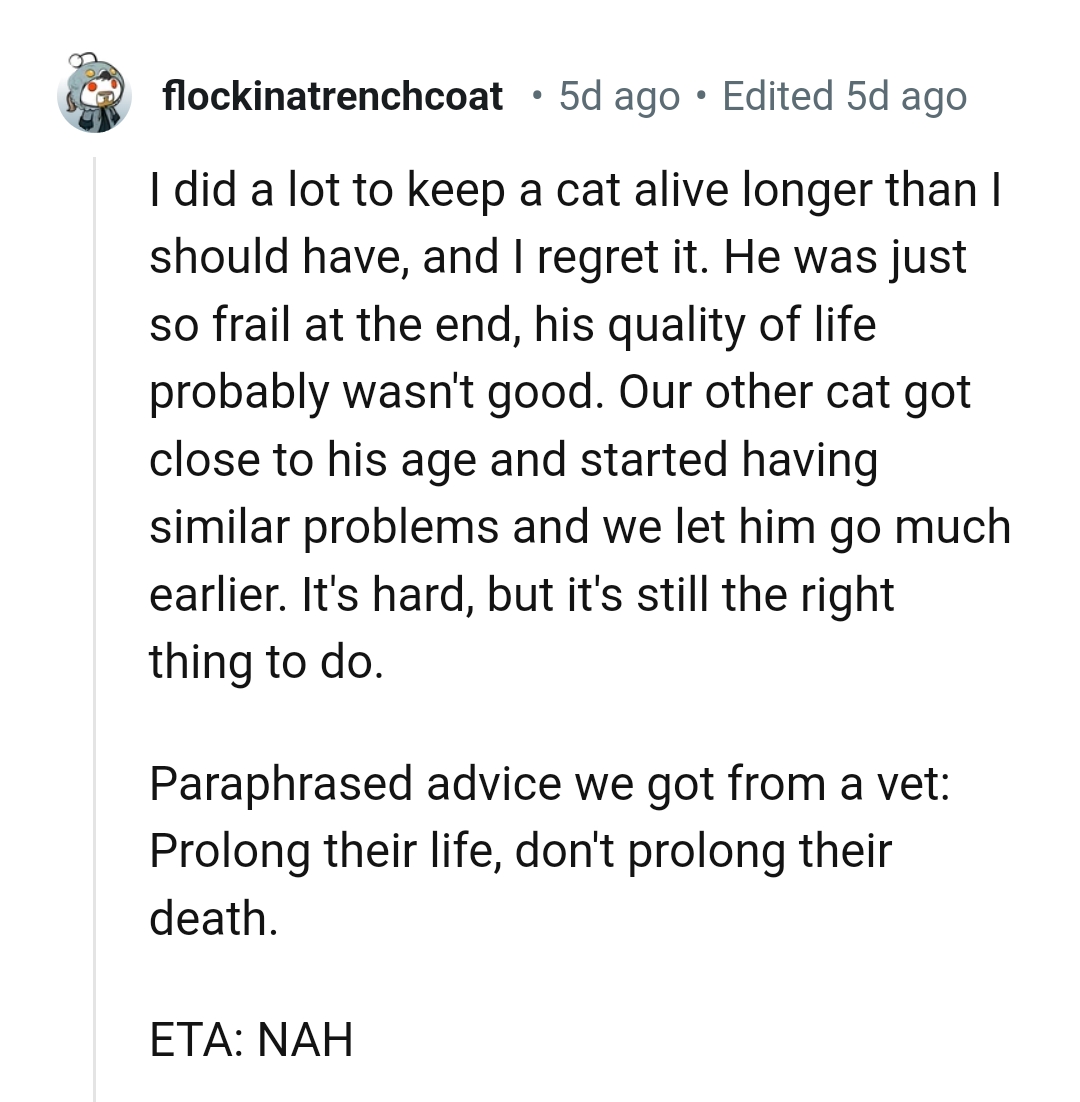
Feeling so helpless
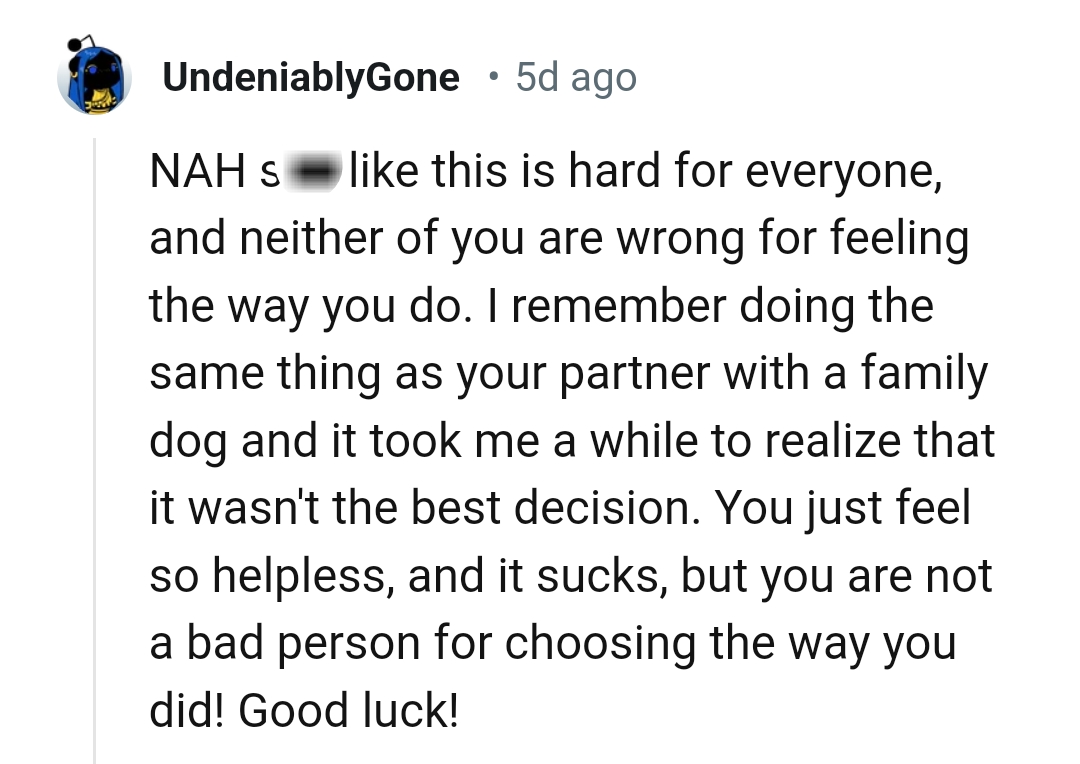
Psychological studies indicate that pet owners often experience intense emotional turmoil when faced with decisions regarding their pet's suffering. According to Dr. Ramani Durvasula, a clinical psychologist, "The emotional bond between pets and their owners can complicate the decision-making process, leading many to prioritize their feelings over their pet's quality of life." Furthermore, Gretchen Rubin, a happiness researcher, emphasizes that "Understanding these emotional dynamics is crucial for making informed and compassionate choices." Recognizing these factors can help owners navigate the difficult terrain of end-of-life decisions for their beloved pets.
It's not sheer quantity
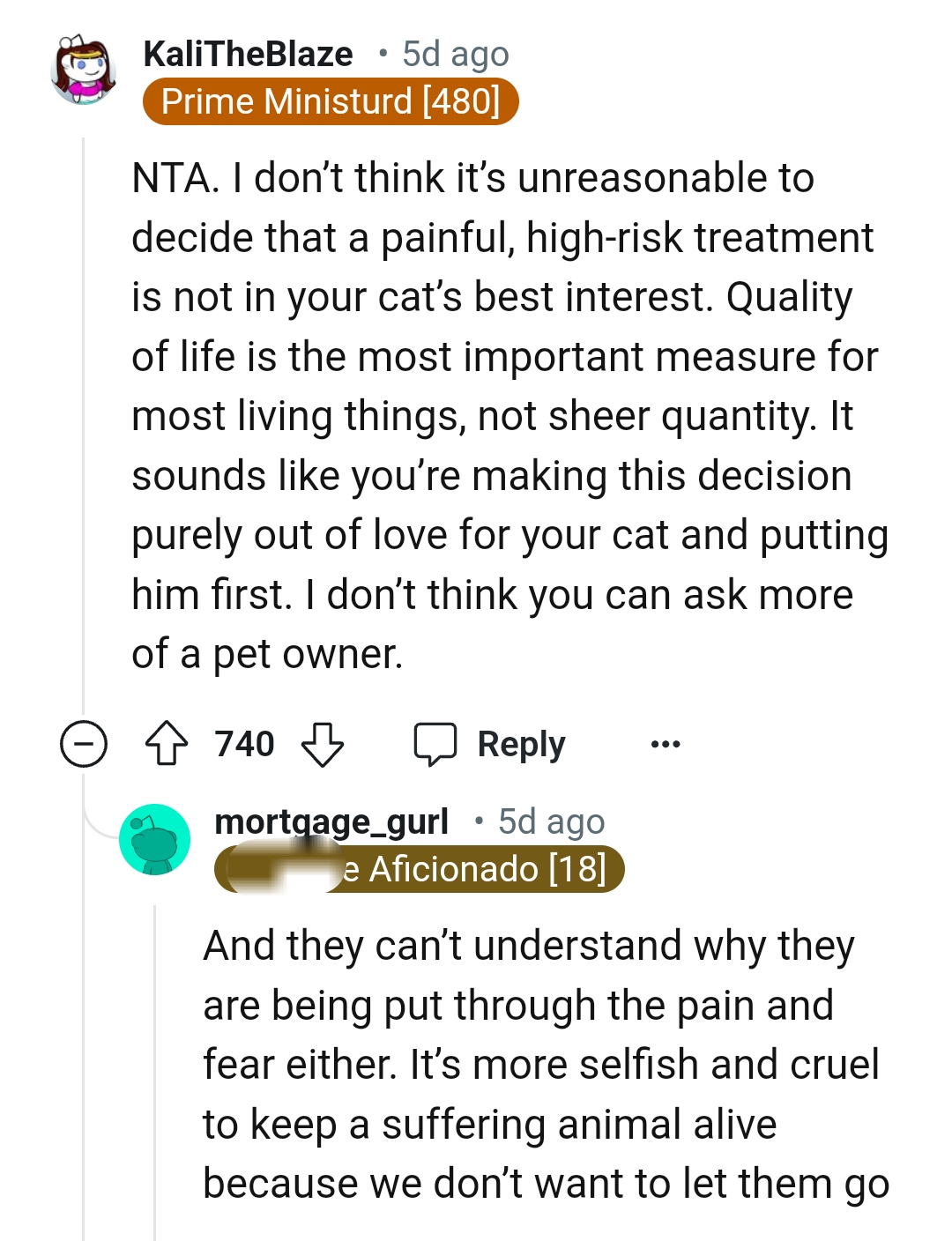
Reaching that particular point
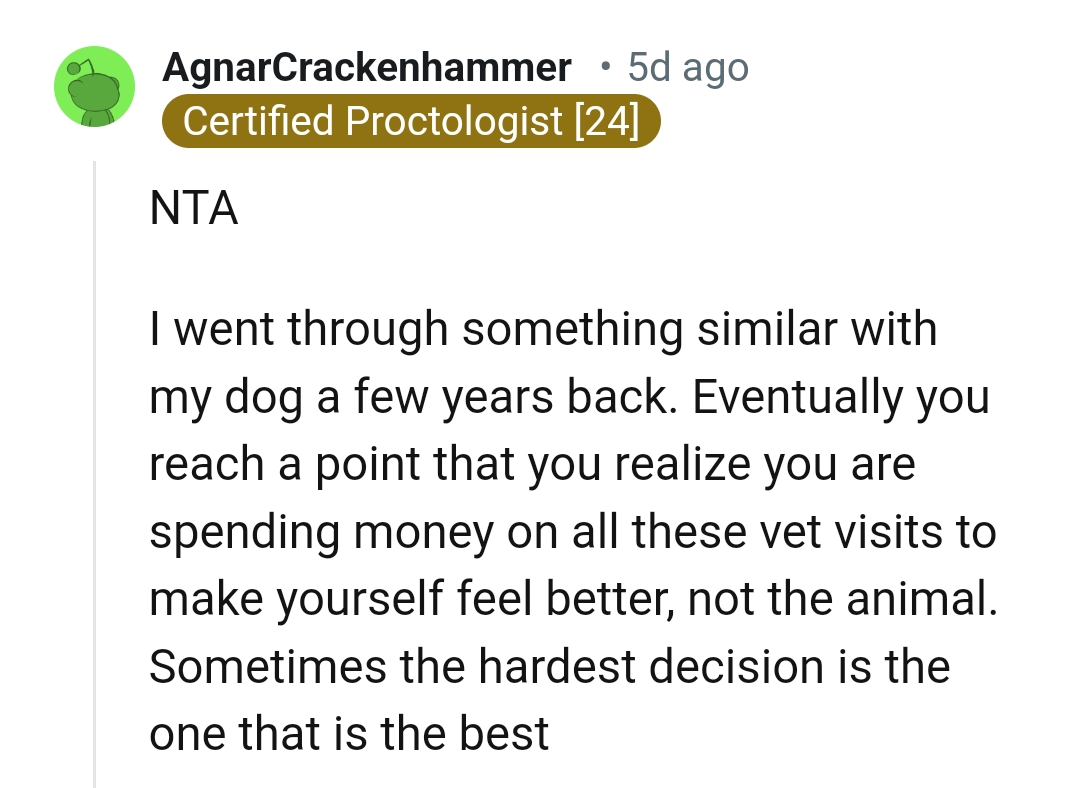
The OP left this update later on
It's sometimes difficult to know you're doing the right thing, and it was never about spending the money. I've had to have two cats put down in my life; I will never shy away from that decision if it's in the animal's best interest.
My partner apologized, saying she was just hurting because she was going to miss him and she didn't really think I was cold.
The OP and his GF have a difference in opinions
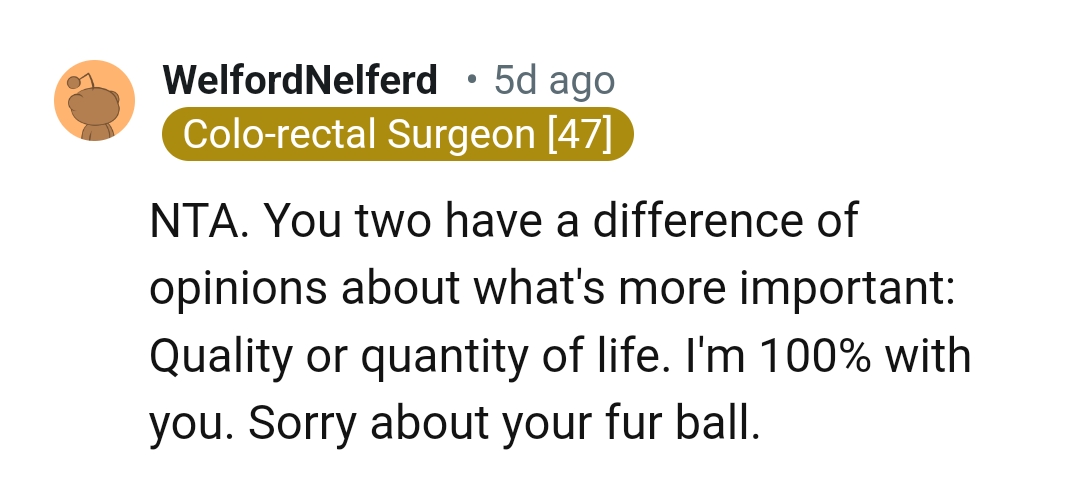
The surgery would have been awful for the cat
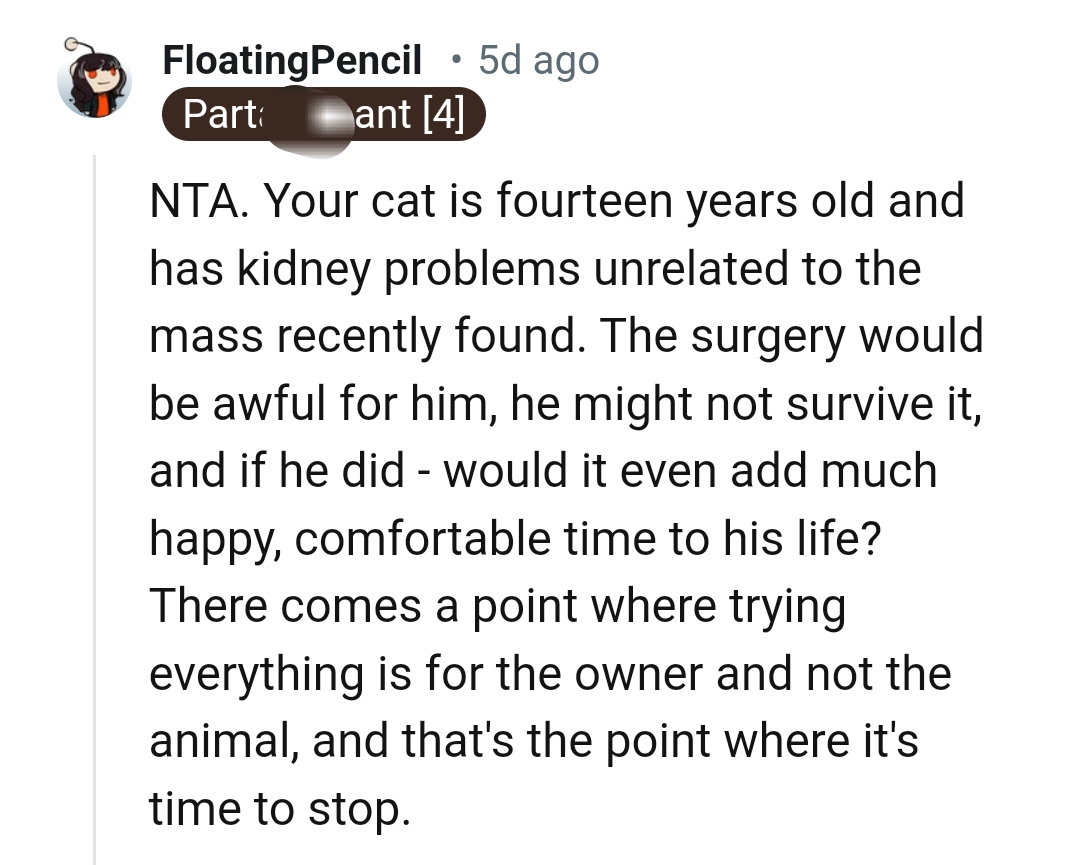
The Role of Ethical Decision-Making
According to Dr. William Doherty, a family therapist, "Ethical decision-making in pet care involves a careful balance between emotional attachment and the animal's quality of life." When pet owners let their emotions interfere with their judgment, it can lead to choices that do not serve their pet's best interests. Recognizing the need for an objective assessment is crucial for making compassionate decisions, as noted by Dr. Ramani Durvasula, who emphasizes that "clear-headed evaluations can help ensure that our beloved pets receive the care they truly need."
He should feel the love until it's his time
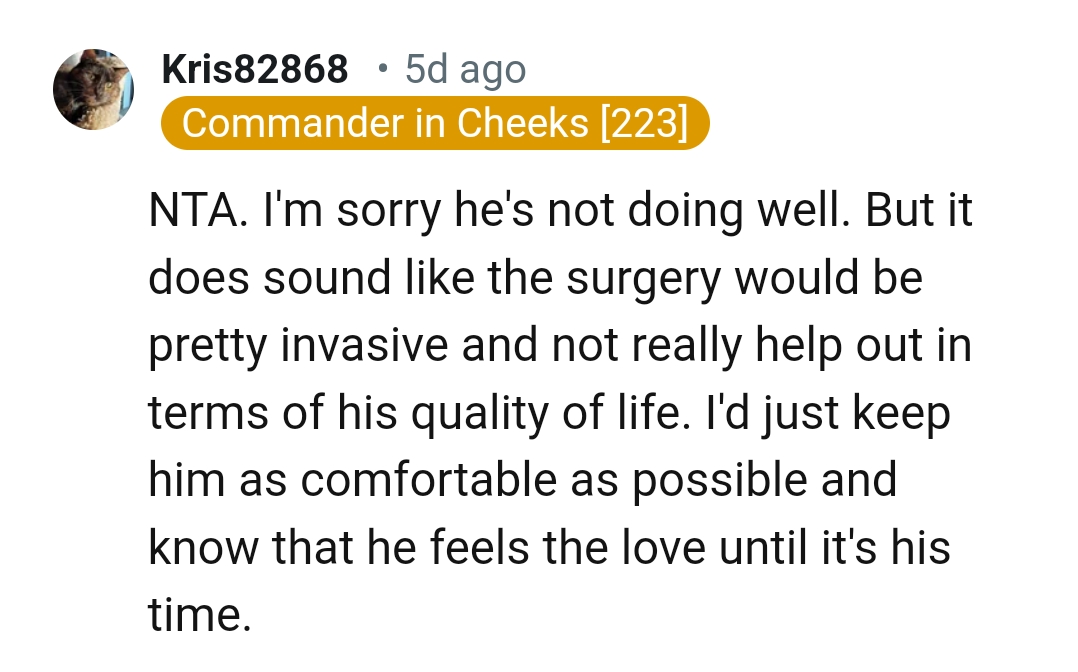
OP left this update about his cat later on
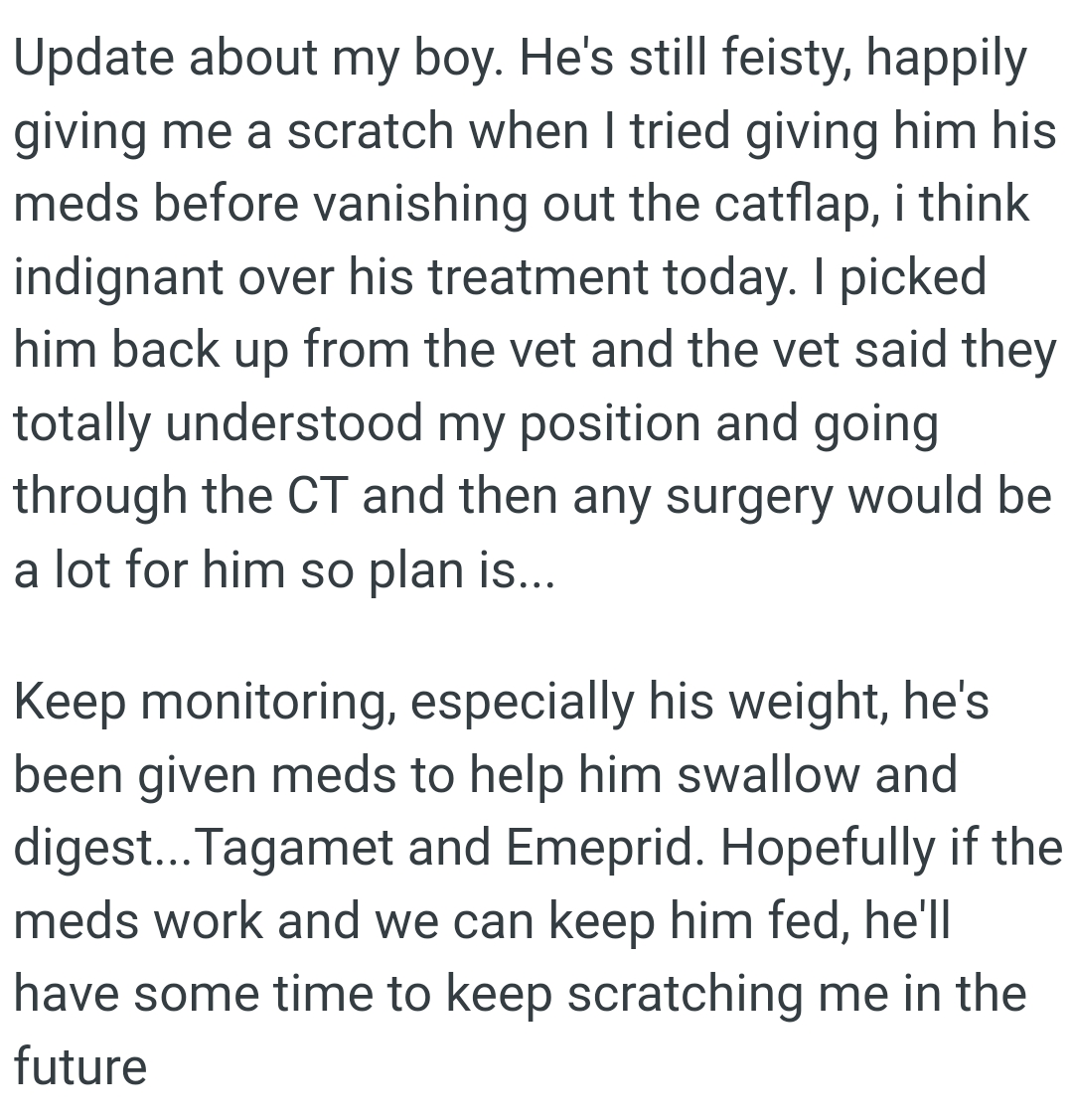
To navigate these difficult decisions, pet owners are encouraged to seek guidance from veterinary professionals and counselors.
Engaging in conversations about quality of life can provide clarity and help owners make informed decisions.
Research indicates that supportive discussions can significantly ease the emotional burden associated with these choices.
Psychological Analysis
This situation illustrates the emotional complexities surrounding end-of-life decisions for pets.
We believe that addressing feelings of guilt and seeking professional guidance can help pet owners navigate these challenging moments with compassion.
Analysis generated by AI
Analysis & Alternative Approaches
End-of-life decisions for pets pose significant emotional challenges for owners, often leading to feelings of guilt and confusion.
Understanding the ethical implications and emotional dynamics is key to making compassionate choices.
Ultimately, fostering open dialogue and emotional support can aid in navigating these difficult decisions.
Pets rely on us for everything, so it is our responsibility as pet owners to provide them with the necessary care. While the OP believes that palliative care is the most humane option for their elderly cat, their partner regards it as a harsh decision.
With insurance covering the costs, the decision is based on what is best for the cat, not what is most convenient for the OP, but he was still declared not the AH.
Navigating Guilt and Emotional Responses
Experts suggest that developing emotional regulation skills can help owners manage feelings of guilt during this process.
By recognizing and processing these emotions, individuals can approach decisions with a clearer mindset.
Research shows that targeted emotional support can significantly improve decision-making outcomes for pet owners facing these dilemmas.



